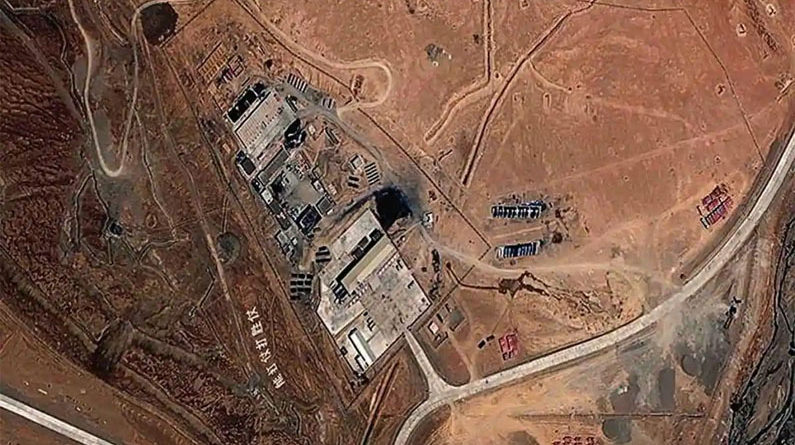Heavy Chinese Missile And Radar Deployment Near Ladakh – Air Chief
Dec 29, 2020
- Any serious conflict with India does not suit China’s global aspirations, says R.K.S. Bhadauria
- He said China’s PLA has been focusing on developing capabilities to counter the global dominance of the US and it could lead to security implications for India
New Delhi: Air Chief Marshal R.K.S. Bhadauria on Tuesday said any serious conflict with India does not suit China’s global aspirations and “grand plans” and the trigger for the Ladakh face-off could be the result of a variety of reasons including a “military dominated misadventure” that escalated following the rapid trust deficit faced by the neighbouring country due to the coronavirus pandemic.
In an address at a seminar, the IAF Chief said China resorted to heavy deployment of radars, surface-to-air and surface-to-surface missiles as well as other air assets to support its army in view of the border standoff in eastern Ladakh but at the same time asserted that India took every action required to deal with the situation.
Air Chief Marshal Bhadauria said China’s People’s Liberation Army (PLA) has been focusing on developing capabilities to counter the global dominance of the US and it could lead to security implications for India.
The online seminar was organised by leading think-tank Vivekananda International Foundation.
The IAF Chief cited a number of possible reasons for China to have triggered the eastern Ladakh border stand-off that included efforts to synergise its new military structure and technology in a war-like scenario to engage with India in the border talks from a new position.
The border stand-off between India and China erupted in eastern Ladakh in early May.
“The important question for all of us is – any serious Indo-China conflict is not good for China. If Chinese aspirations are global, then it does not suit their grand plans. Then what could be the possible Chinese objective for their actions in the North. This is important to understand,” he said.
“Was it simply military signalling, was it domination efforts focused on the region with adequate control to escalate…was it deployment and training of their western theatre forces in a real war like scenario wherein the Galwan incident was an overreach or was it to fine tune and enhance the military technologies and fill their gaps to get their forces to synergise with the new structures and technologies,” he said.
The Air Chief Marshal further said, “In any case, what has actually happened is all of the above irrespective of what was the starting objective. It could also possibly be a totally military dominated misadventure that escalated given the rapid trust-deficit post COVID-19”.
He said India has been “thwarting” continuous attempts by its adversary to breach its territories and sovereignty on many occasions.
“As India expands its global interests and reach, there is even a compelling case to focus adequately on hard power. The importance of air power in the larger security matrix has grown manifold,” the IAF Chief said.
He said China has been expanding its military bases in its quest to end global dominance of the US and its impact could be felt by India as well.
The IAF Chief also said Pakistan has become a pawn of Chinese policy and its dependence on China would increase further in future. He said India needs to understand the interplay of some major events in its vicinity that would impact the security scenario of the region.
Air Chief Marshal Bhadauria said withdrawal of US forces from Afghanistan could result in upsurge in violence as regional powers are jockeying for increasing influence in the country. “Pakistan has already jumped ships to take advantage of the shifting scenario to become more relevant in Afghanistan,” he said.
Developments in West Asia and strengthening of old geopolitical and military alliances including among Pakistan, Iran and Turkey may have security implications for India, he said, adding Pakistan getting access to Turkish technology could pose a threat for India.
The IAF Chief said India needs to focus on boosting its overall military capability to ensure a rapid and effective response mechanism. At the same time, he added the IAF is fully capable of dealing with any scenario but pitched for enhancing the country’s overall air power considering the evolving regional security architecture.
“This would require a focused approach especially with respect to China as they have invested heavily in research and development and have grown manifold in capabilities and technologies,” he said.
He also extensively deliberated on the rapidly changing nature of warfare and referred to the potential threat emanating from drone technology that was in full display during the recent conflict between Azerbaijan and Armenia, Syrian war as well as in the attack on oil installations of Saudi giant Aramco.
“The texture of these conflicts are a reflection of future warfare. There are important lessons for us and we will factor in all these as we move forward,” he said.
He said the IAF is actively pursuing niche technology in the field of space-based capabilities, artificial intelligence, big data analysis in making the force’s targeting cycle highly effective. His force is actively pursuing anti drone and swarm drone technologies for a highly networked air battle scenario.
“The IAF is completely capable of dealing with the changing nature of warfare. We have reoriented our capability requirement for future wars based on developments in recent past,” he said.
He also strongly pitched for indigenous platforms and weapons for the armed forces to maintain a technological edge, saying due to the long wait in arrival the imported ones become obsolete by the time they are delivered.
This story has been published from a wire agency feed without modifications to the text. Only the headline has been changed.
Courtesy: Opera News/Mint

